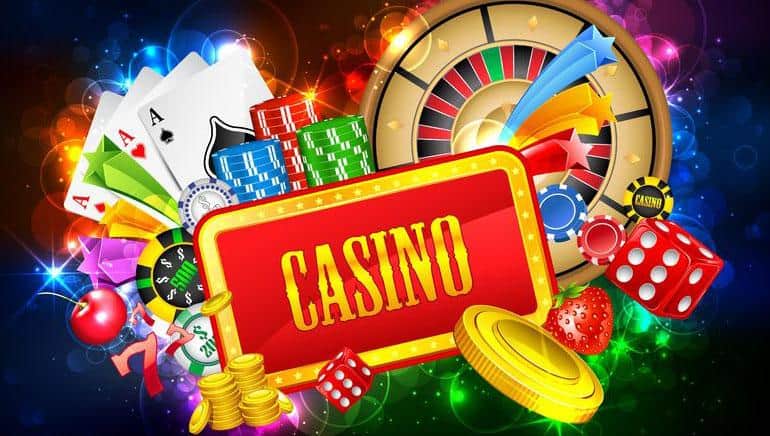
Casino activities have captivated gamblers for ages, drawing them into a world of adventure, chance, and wealth. From the sparkling lights of gambling machines to the intense action of poker games, these experiences offer a distinct blend of entertainment and exposure. However, below the facade of this glamour and glamour lies a sophisticated connection of math that determines every result and choice made within the gaming hall.
Comprehending this link between gaming activities and numerical principles merely boosts the player’s journey but can also help players make knowledgeable choices. Whether you are a occasional gambler or a avid follower, recognizing the numerical strategies at play can give valuable insights into chances, odds, and strategies, finally shaping how one deals with these games of luck.
Arithmetic Likelihood in Betting
In the sphere of gambling games, statistical probability plays a crucial role in determining results and informing player choices. Every activity has a distinct set of rules and a specific probability framework that influences its dynamics. For example, in games like the roulette wheel, players must understand the chances of hitting a particular digit or color. The probability of specific occurrences occurring can be assessed, and this understanding can substantially affect wagering tactics.
Players also need to be informed of the casino advantage, which is the mathematical benefit that gambling establishments hold over players in the long term. This edge differs across different activities. In blackjack, skilled players can use strategies to minimize the house advantage to as little as 1 %, while in activities like slots, the house advantage can be substantially larger. Understanding the house edge allows players to make informed decisions about which activities to play and the amount to wager.
Additionally, likelihood is crucial in the principle of danger versus gain in betting. Every wager carries a particular risk level, and players must evaluate the possible return against that danger. Games like the poker game require gamblers to not only calculate the odds of their personal showing winning but also to evaluate the probabilities of their rivals’ hands. By utilizing mathematical concepts to their strategy, gamblers can enhance their chances of success and participate more strategically in the thrilling realm of gambling games. https://nohuonlines.com/
Expected Worth in Casino Games
When talking about casino activities, one of the fundamental ideas rooted in mathematics is the expected worth. This statistical metric assists gamblers understand the possible results of their wagers over time. In basic terms, expected value (EV) calculates the mean amount a player can expect to gain or lose per wager if they were to play the activity repeatedly. Each game has its unique EV, influenced by the odds and the house edge, which signifies the benefit that the casino holds.
For instance, think of a activity like the roulette game. The expected value can be derived based on the specific bet placed. If a gambler bets on a single number, the return is 35 to 1, but the true chances of winning that bet are 1 in 37 (in Euro roulette). This leads in a detrimental expected value, showing that, on the whole, players will lose money over a period when playing this type of wager. Grasping this idea allows players to make more informed decisions about which activities and wagers may be less advantageous.
Moreover, the exploration of expected value can lead to better money management. Gamblers who comprehend the math behind their activities are often able to set realistic expectations. By recognizing their potential deficits and gains, they can adjust their playing strategies accordingly, which may enhance their total gambling experience. As a consequence, anticipated worth serves as a critical resource for both novice and experienced gamblers to navigate the often volatile character of gambling games.
Strategies and Odds: The Arithmetic Behind Success
In gambling games, grasping the probabilities is essential for participants looking to enhance their likelihood of winning. Each activity has its own specific set of odds that determine winning outcomes, and these statistics are often found in the game’s rules or payout schedules. For instance, in games like 21, participants can improve their chances through tactics such as tracking cards, which is based on arithmetic concepts to gain an upper hand over the casino. By educating themselves with the chances, gamblers can make more informed determinations on when to wager and when to quit.
Moreover, the idea of expected outcome holds a major role in gambling strategies. Expected value calculates the mean outcome of a wager over the long run, allowing players to assess whether a certain stake is justifiable taking. For instance, video slots have a specific payout percentage, which can suggest the expected payout a player can look for on their wagers. By opting for games with higher average outcomes, participants can reduce the house edge, enhancing their future winnings in the over time.
In conclusion, successful participants often adopt a blend of chance and calculative tactics to boost their gaming experience. While chance is unpredictable, managing a wagering approach based on calculative ideas can lead to more positive results. By utilizing techniques such as money management and game selection, players can apply math to handle the volatile nature of gaming, making the most of their investments and resources at the casino.
